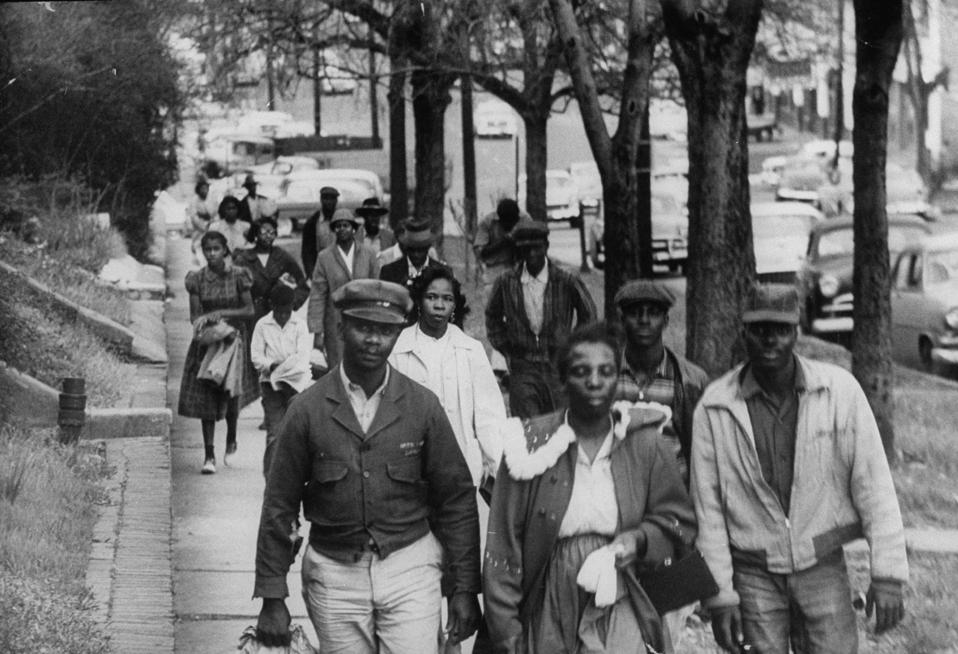It was recently announced that Target’s CEO of 11 years, Brian Cornell, would be stepping down and Michael Fiddelke, 20-year Target veteran and the Chief Operating Officer, would be stepping in to replace him. Target’s stock has seen a considerable decline since the start of 2025. While some have attributed the company’s decline to Trump’s tariffs and the weakening economy, the company’s about-face when it came to DEI sparked backlash and criticism, leaving a bad taste in the mouths of many consumers. In February of 2025, prominent Atlanta pastor Dr. Jamal Bryant called for a boycott of Target in response to the company’s rollback of their DEI initiatives. The boycott, Bryant indicated, has been the most successful Black boycott since the Montgomery Bus Boycott that occurred 70 years ago.
DEI is currently the nation’s favorite bogeyman; being blamed for everything from bridge collapses to plane crashes. There is still a lack of understanding regarding what DEI is, how it can positively impact employees and how it can benefit workplaces, contributing to some of the DEI pushback that has increased in recent months. Make no mistake; DEI is far from perfect, but the existence of workplace DEI programs often provides a pathway to address harm that takes place in the workplace.
Many Black consumers saw Target’s decision to cut DEI initiatives as a slap in the face. The company was seemingly so outspoken with their support of Black businesses, pledging a $2 billion investment in Black-owned businesses after the murder of George Floyd. Consumers have become much more judicious with their spending, deciding to resist through their wallets. Costco has been an outspoken advocate of DEI, choosing not to flounder under pressure from DEI opponents, and has seen a net increase in sales, which many attribute to their doubling down of DEI.
Target drew the public’s ire because unlike many of the companies that announced they were scaling back their DEI efforts in the past year, Target was one of the most ardent supporters of DEI through their racial equity agenda. With Target being headquartered in Minneapolis, Minnesota, the company was at ground zero following the tragic murder of George Floyd. The expectation was that their proximity to the tragedy would result in a true commitment to uplift the Black community, but less than five years later, the company reneged on their promises and pledges.
In 1969, activist Fred Hampton was instrumental in spearheading the Rainbow Coalition, where different groups of people worked together to address a common issue. What made the coalition so successful is the power in numbers—multiple people working towards a shared goal is an effective way to combat societal ills. During the Montgomery Bus Boycotts, Black folks were able to inspire and mobilize people from outside the Black community to join their cause. What has made the Target boycott so successful has been a similar strategy from the boycott organizers.
It hasn’t been only Black consumers who have been boycotting Target. Communities of other historically marginalized and excluded populations (Latinos, poor folks, the LGBTQIA+ community) have also mobilized to support the boycott. Different groups who knew that DEI rollbacks would impact their communities have come together after calls to boycott from leaders like Bryant. There is power in numbers but it’s important to note: when there is a critical mass of people working towards a shared goal, that goal can be accomplished, according to Harvard political scientist Erica Chenoweth. Chenoweth’s research indicated that only 3.5% of a population’s participation is needed to drive change.
The question remains whether the hiring of a new CEO will resurrect Target’s image and thus their sales. In a recent CNN interview, Bryant noted that hiring an internal candidate who has been at the company for decades will not change the company’s engrained ideology or their stance on DEI. Contrary to the popular saying, companies that “go woke,” perhaps won’t actually go broke.
Companies should learn from Target’s missteps; a commitment to ensuring that all employees are treated equitably and fairly is not a nice-to-have but a need-to-have. Both consumers and employees are watching; if your words don’t align with your actions, there will be a price to pay. Rather than swaying to appease investors, the DEI detractors, or this current administration, the longevity and sustainability of companies will ultimately be decided by how they treat their employees. People are not settling for crumbs—a failure to prioritize the wellbeing of workers will continue to have dire consequences.

